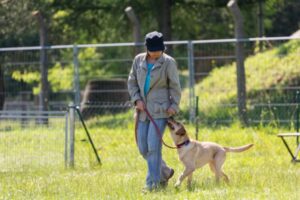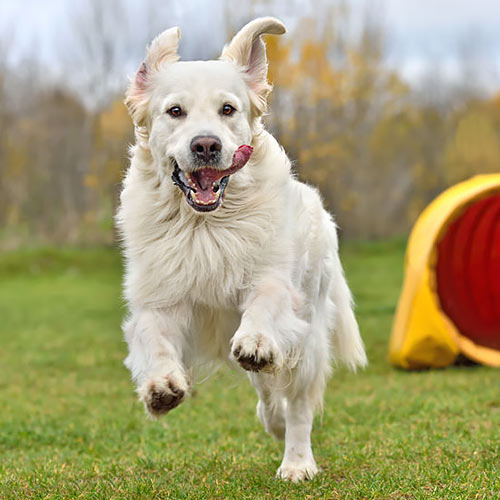Those who wish to train dogs on a professional level will need a large amount of experience. Each one of the courses offered at the Dog Trainer College are purposely designed to be largely hands-on; roughly 70%. A solid dog trainer certification course will include practical training experience.
purposely designed to be largely hands-on; roughly 70%. A solid dog trainer certification course will include practical training experience.
It is true that a good trainer will need to know training fundamentals and theory. This is what separates a professional from the backyard guy who slips his dog a treat and says he is a trainer. He may be giving treats at the wrong time for an unwanted behavior and reinforcing things he’ll later wish he hadn’t, but “he’s a trainer.” The professional needs to know the mind of the dog: how he thinks, what is important to him, what makes him “click.” But head knowledge alone isn’t enough.
A good trainer will also have some practical, hands-on experience. Books and videos can be helpful but they cannot teach the everyday skills in training. In real life, the trainer will need to hold training aids and leashes and treat bags all at the same time. The trainer will need to handle these in an efficient manner that boosts the dog’s learning experience and doesn’t confuse him.
During the learning phase of becoming a trainer, the student will need progressive supervision in order to juggle the responsibilities successfully. While we encourage involvement at Shelters and Humane Societies, a learning trainer cannot flourish in that setting. He/she may have someone who looks over his/her shoulder. But if that director is not an experienced trainer herself, she cannot point out errors or encourage better ways to get better results from the dog. A beginning trainer should have someone with training experience on hand to correct poor habits before they become a regular part of the training regimen and to give pointers on how to do things better.
An online course (even those who proclaim to be hands-on) can teach training theory but can do little to teach true, relevant training experience. This is why students at the Dog Trainer College come to campus to get an education. Serious students will want all the training experience they can gain. Real-world training cannot be equaled. Furthermore, future prospective clients will want to know that your dog trainer certification came from a real-world campus, not a second-rate online course.

